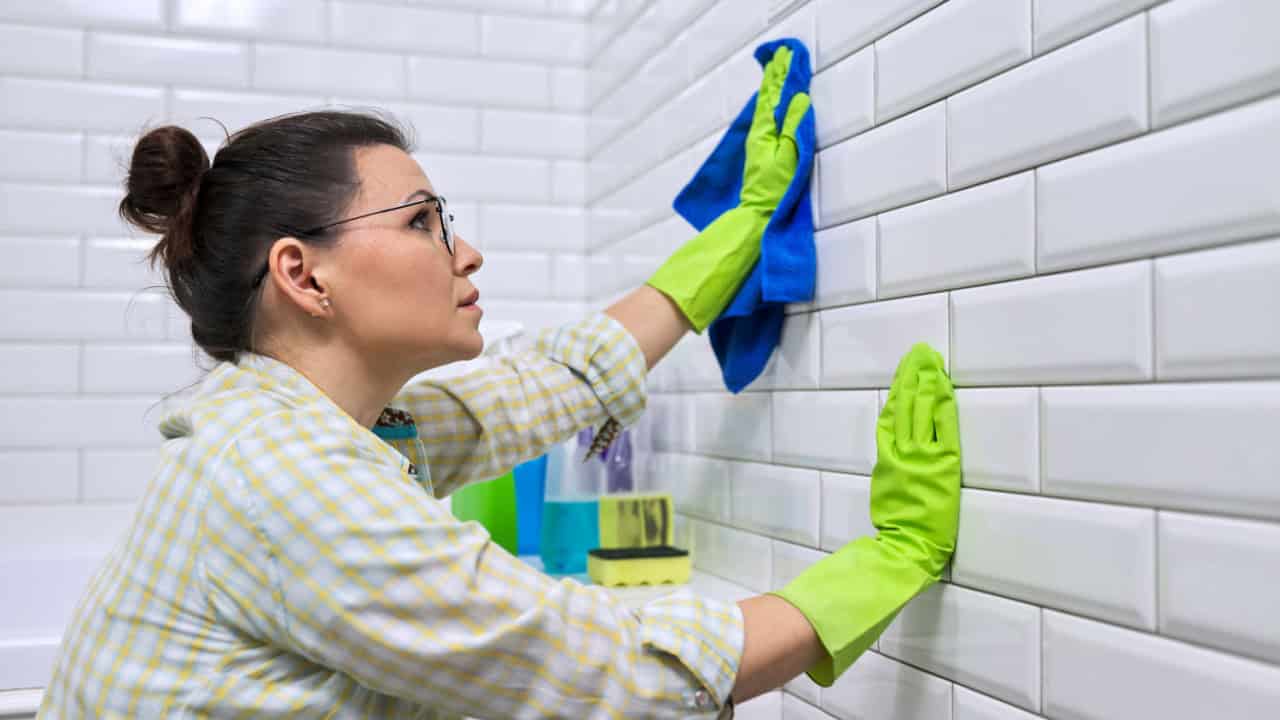
It may seem easy to clean your home, but some common mistakes can hurt surfaces, make cleaning less effective, or even put your health at risk. If you stay away from these mistakes, your home will be cleaner and safer, your things will be safe, and you won’t have to spend money on replacements.
1. Don’t ever mix cleaning chemicals.
Mixing different cleaning products is one of the most dangerous things you can do when cleaning. Bleach and ammonia-based cleaners make chloramine gas, which is poisonous and can cause serious breathing problems. Mixing bleach with rubbing alcohol also makes chloroform and other dangerous chemicals. Always clean with one product at a time and make sure there is enough air flow.
2. Don’t clean the windows when it’s sunny.
It makes sense to clean windows when it’s bright outside, but direct sunlight makes cleaning solutions dry too quickly, leaving spots and streaks. The heat makes the cleaning solution dry up before you can wipe it up right. Pick cloudy days or clean windows that are in the shade to get rid of streaks.
3. Don’t ever use too much cleaning product.
When it comes to cleaning solutions, more isn’t always better. Using too much cleaner can leave behind dirt, attract more dirt, and cost you money. Too much soap can also hurt some surfaces and make it harder to rinse. Follow the directions from the maker and keep in mind that a little bit can go a long way.
4. Don’t forget to try out new things
Before using cleaning products on surfaces that are easy to see, always test them on a hidden area. Chemicals affect different materials in different ways, so something that works on one surface might hurt another. This easy step can save you money by keeping your furniture, fabrics, or floors from getting damaged.
5. Don’t use rough things on delicate surfaces.
Steel wool, scouring pads, and other harsh cleaners can permanently scratch and hurt delicate surfaces like glass, marble, or stainless steel cooktops. These scratches not only look bad, but they can also hold bacteria and make it harder to clean surfaces in the future. Use the right tools for each type of surface.
6. Don’t ignore the care instructions from the manufacturer
Always read and follow the cleaning instructions from the manufacturer, no matter what it is: furniture, appliances, or specialty surfaces. Using the wrong products or methods can void warranties and cause damage that can’t be fixed. If you’re not sure, use mild cleaning products that the manufacturer says are safe.
7. Don’t ever clean electronics with water-based solutions.
Water and electronics don’t go together. Cleaning solutions should never be sprayed directly onto keyboards, screens, or electronic devices. Instead, use the right cleaners made for electronics to slightly dampen a microfiber cloth. Always make sure the devices are turned off and unplugged before cleaning.
8. Don’t Clean with Dirty Tools
Using dirty mops, cloths, or vacuum filters is not helpful because they can spread dirt and germs instead of getting rid of them. Keep your cleaning tools in good shape by washing cleaning cloths, replacing or cleaning mop heads, and so on. If you use a dirty tool, you can make surfaces you’ve just cleaned dirty again.
9. Don’t rush the dwell time.
Most cleaning products need time to do their job well. Spraying and then wiping right away often doesn’t give the cleaner enough time to kill bacteria, dirt, or grime. Check the labels on the products for the recommended dwell times, which are usually between 30 seconds and a few minutes, depending on the product and the surface.
10. Don’t clean from the bottom up.
To avoid having to clean lower areas again, always clean from the top down. Because of gravity, dust, dirt, and cleaning solution fall down. This means you’ll have to clean the same areas more than once if you start at the bottom. Start with the ceiling fans and high shelves, and then move down to the floors.
11. Always remember to ventilate properly.
When using cleaning products, especially those with strong fumes, it’s very important to have enough air flow. If there isn’t enough air flow, you might get headaches, feel dizzy, or have trouble breathing. When using strong cleaners, make sure to open windows, use exhaust fans, and take breaks outside. This is very important in small, closed spaces like bathrooms.
The Bottom Line
Cleaning your home well means working smarter, not harder. By not making these common mistakes, you can get better results while keeping your health, your things, and your money safe. Keep in mind that the right techniques and patience are often more important than how strong your cleaning products are.
Spend some time getting to know your surfaces, reading product labels, and buying good cleaning tools. Not only will your home look better, but it will also be safer and cleaner for you and your family.